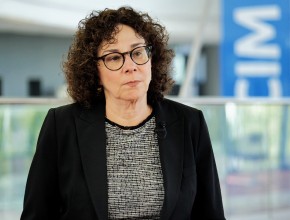In what patients can we consider reducing the duration of lifelong antithrombotic treatment?
Wendy Lim, MD: Oftentimes when we think about duration of anticoagulation, there are some clear-cut categories: patients who have thromboembolic events provoked by surgery, hospitalization, pregnancy, or oral contraceptives. I think that we are very clear in those situations that they only need a defined period of time, typically 3 months [of anticoagulation]. Thereafter, it becomes more challenging and very controversial in terms of optimal duration of anticoagulation. I think what is becoming more clear is that individuals who have risk factors for recurrent thrombosis would benefit from long-term anticoagulation and what is going to tip that balance is if they develop any bleeding complications associated with antithrombotic therapy.
On the first time when we think about those patients who might be likely to derive benefit: Individuals who are male as opposed to female typically have a higher risk of recurrence; individuals whose events are unprovoked as opposed to provoked, again, likely have a higher risk of recurrence; and those who have ongoing risk factors, so a good example would be cancer. If they are receiving cancer chemotherapy or radiation, or if they have a metastatic cancer, or they have an underlying—thrombophilia is a bit more of a controversial one. Some of the more common thrombophilias probably are not associated with an increased risk of recurrence, but some of the less frequent thrombophilias such as antithrombin deficiency, for example, or patients who have antiphospholipid syndrome—there may be certain categories of patients who will be at higher risk.
If you have identified an individual who either has one of those risk factors that would warrant long-term therapy, or it may just be that patients prefer to be on long-term therapy because they want to reduce their risk of recurrence, then, as I said, it is really the acquisition of bleeding that would tip that balance. If while they are on the anticoagulants they develop some sort of bleeding complications—the most common would be gastrointestinal bleeding—that might be a reason that in somebody who you had previously thought you would leave on lifelong treatment, you would perhaps consider stopping the anticoagulant therapy or in certain situations may consider dose reduction. Again, it may be that if the bleeding cause was treatable—say, it was an ulcer that could be healed with proton pump inhibitor therapy—then one might stop the anticoagulants while they are experiencing that, but once that bleeding risk factor has been treated and it is gone, then one might again say that balance has been changed, and we might think about putting it on again, versus somebody who has a bleeding cause such as, let’s say, angiodysplasia of the bowel that is intermittently treatable but is oftentimes a chronic disorder.
I think there are situations where one might think about it, but I think, again, it speaks to the fact that chronic anticoagulation therapy requires continual monitoring and surveillance of complications.
 English
English
 Español
Español
 українська
українська











